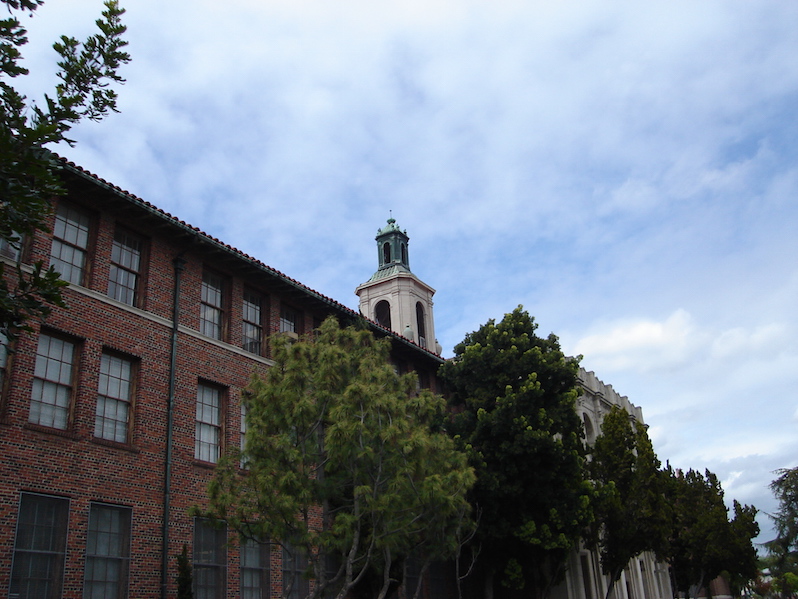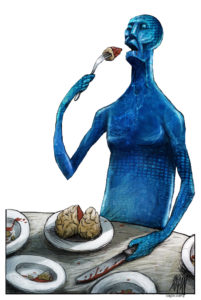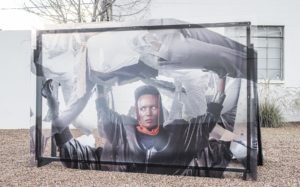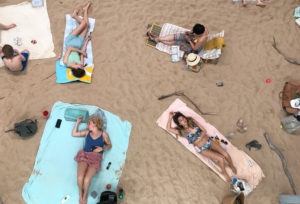U.S. Public Schools Should Revive Stagnant Humanities and Arts Education
The best remedy against cynicism in young students is a curriculum that teaches contemporary events while establishing parallels with history. The entrance to Hamilton High School in Los Angeles. (Wikipedia Commons)
1
2
The entrance to Hamilton High School in Los Angeles. (Wikipedia Commons)
1
2
The old wisdom about why we study history—that those who don’t are doomed to repeat its mistakes—gave rise to the most gratifying project of my Humanitas coordinatorship. It was the term-long study of California history, in conjunction with the performance of a play on that subject. Every member of the class was involved in the production. Many were actors, and several did not consider themselves drama geeks prior to “Remember or Repeat,” by San Jose playwright John McCluggage. The play dealt in part with a convergence of events around the middle of the 19th century: the Mexican-American War, the Treaty of Guadalupe Hidalgo and the California Gold Rush. The art department was involved in the design, construction and decoration of sets. The project was a poster child for interdisciplinary instruction.
In the spring of 1995, the new principal informed me that Humanitas would be discontinued at L.A. High because the district had decided to prioritize the Academy of Finance. “Aha,” I thought, “high school has become glorified job training.”
With the cessation of Humanitas, I invested my emotional energy in the Rimpau Players, a student-faculty theater group a colleague and I started in 1991. In the years just before and after the millennium, I taught a drama class and an elective in Shakespeare performance. For the Rimpau Players, I was the classicist, and my gifted colleague, Jeffrey Waid, was the modernist. He also supervised all technical aspects of production and trained students in those varied and valuable skills. It felt as if we were in a kind of a golden age, and it was my good fortune to come into closer touch with Robin Lithgow, theater adviser and coordinator for the Arts Education Branch at LAUSD.
It is not hyperbole to call Lithgow L.A.’s most ardent lover of theater and arts education. The generosity and encouragement she radiated to theater teachers throughout city schools on all levels was extraordinary. In our 18-year history as an extracurricular theater group, I can’t recall her ever missing a production. She is an exceptional person. Her love of Shakespeare dates to childhood, when her father’s theater, Shakespeare Under the Stars, in association with Antioch College, nourished the talents of several great American stage actors, including Ellis Rabb and Nancy Marchand. Lithgow, who retired from the Arts Branch in 2012, is currently writing a book on the influence of Renaissance humanism on Elizabethan education. This subject interests me, because I believe if we adhered to the principles of Erasmus, who brought the revival of classic literature from Italy to the countries of the north, we would make great strides in educating our young people.
It might be reasonable to suppose that a theater person’s interest in arts education is redundant. But Lithgow understands the connection between the teaching of process in the arts and cognition. While practicing piano, drawing, executing the moves of a galliard or rehearsing a role for the stage, we are always engaged in one or more phases of a cycle: curiosity, experimentation, inquiry, reflection. These steps are analogous to working out a problem in geometry or conducting an experiment in biology.
Erasmus and the great educators of Tudor England he so clearly influenced over the course of the 16th century—Richard Mulcaster, John Colet, Thomas Elyot, Roger Ascham—assigned the arts to their rightful place at the highest order of the curriculum. Our first impressions of Henry VIII are probably not of his fervent wish to bring the light of Renaissance education to England, but such was the case.
The Erasmus formula, most robustly set in motion by Mulcaster, will not receive a full explanation here, but its essential elements are these: restore a sense of joy and play to learning (particularly among children), liberate classrooms from the shackles of scholasticism (wherein cold logic supersedes all else), replace logic with rhetoric (teaching the delicate skill of packaging an argument rather than delivering it without style), recognize the importance of teaching the arts and don’t sequester them from other disciplines.
Above all, Erasmus was the quintessential “Renaissance man,” a philosopher, cleric and theologian, teacher, translator and preeminent classicist. L.A. High’s Humanitas program was formed from his mold—eclectic, independent, interdisciplinary, joyous and screaming defiance at what Wordsworth called “shades of the prison house (which) close in on the growing boy.”
Puritans ruthlessly reconstructed the walls of the educational prison in the first half of 17th century England. Those walls didn’t begin to crumble until the 20th century, with the advent of such innovators as John Dewey and the Reggio Emilia schools in Italy.
We need new beginnings again—in the United States and Los Angeles.
Anstead, ever the champion of humanities education, is optimistic. Now 80-something, he will soon be teaching a summer Shakespeare enrichment class at Cleveland High School, which continues to have a Humanitas team, just as it has for the last 35 years, but now without corporate funding. Jennifer Macon, who exudes the qualities of an open, imaginative leader and a great teacher, leads the current Cleveland team superbly.
Anstead understands that foundations are designed to fund initiatives in the short term. But he predicts that humanities will get another shot, and when that happens, we’d better be prepared.
Los Angeles, along with other American cities, has some outstanding teachers, and a resourceful, dedicated teacher can always work wonders, despite myriad institutional constraints. I just wish the powers in Washington, Sacramento and downtown at the district headquarters had the guts to look back to the future.
John Ogden is a retired teacher. At Collegiate School in New York and Westridge School in Pasadena, he taught English and directed the drama programs. Joining the faculty of Los Angeles High School in 1986, he was co-founder and artistic director of The Rimpau Players, a student-faculty theater group. He was raised in New Canaan, Conn., and now lives with his wife, Patti, in Valley Village, Calif.
Your support matters…
SUPPORT TRUTHDIG
Independent journalism is under threat and overshadowed by heavily funded mainstream media.
You can help level the playing field. Become a member.
Your tax-deductible contribution keeps us digging beneath the headlines to give you thought-provoking, investigative reporting and analysis that unearths what's really happening- without compromise.
Give today to support our courageous, independent journalists.






You need to be a supporter to comment.
There are currently no responses to this article.
Be the first to respond.